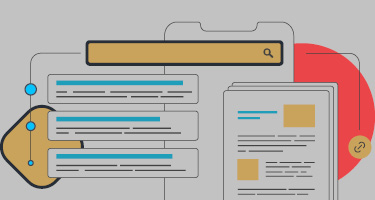You've done all you can to prepare and present your client’s case, but despite your best efforts, the trial court rules against you. Emotions often run high after a fiercely litigated loss, and your client may ask you to immediately file an appeal to “fix” the trial court’s ruling and get it reversed. Don’t let that train leave the station before you carefully examine the ruling and have a frank discussion with your client about the many pros and cons of doing so.
There’s no doubt: Appealing is time-consuming and often expensive, and both counsel and client must carefully and realistically consider whether it’s worth their while. The next time you face the prospect of an appeal, include the following in your checklist:
Is the Loss Appealable—and Worth Appealing?
This is the threshold question. Family law attorneys practice in a world of fluid situations, of orders that are often “temporary” until a “final” decision can be entered. Appeals are generally taken from final judgments, but rules of practice enacted by state supreme courts can provide for appellate jurisdiction to consider non-final orders in certain circumstances. Start, then, by understanding what type of order was entered, and be sure that appellate jurisdiction exists to review the order under the applicable rules.
Even though a ruling may be appealable, that doesn’t automatically mean an appeal is the best course of action. Not every loss is worth appealing, and you should perform a detailed, objective analysis of several factors before proceeding.
First, it’s important to consider the standard of review that applies to your case and whether it works for or against your client. An appellant stands in the strongest position if a pure issue of law can be raised, as it is subject to de novo review where no deference is given to the trial court. On the other hand, an appellant is in the weakest position if the claim of error is one of abuse of discretion, in which the most deference is accorded to the trial court’s ruling. You must understand the effect of the standard of review, especially when it means the appeal does not start out on a level playing field due to the deference given to the trial court’s judgment.
Not every loss is worth appealing, and you should perform a detailed, objective analysis of several factors before proceeding."
Second, consider that taking an appeal of a portion of the judgment could be the catalyst for the opposing party to file its own request for cross-relief on parts of the judgment decided in your client’s favor. By putting the trial decision in play, the other side might ultimately get the favorable (to you) aspects of the decision overturned, leaving your client in a worse position than before. Assess the risk of which potential issues the opposing side could raise, and the probability of success.
Finally, do a thorough cost-benefit analysis to determine whether an appeal could in fact benefit your client. For example, will the cost of the appeal deprive your client of any potential financial benefit she could get from a victory? Can your client emotionally handle the additional months—perhaps years—of litigation? If the parties have children, what impact will an appeal have on them?
Be aware that your client could also be on the hook for the fees the other side incurs in defending the appeal. Because attorney fee shifting is common in family law cases, it can also carry over into the appellate process. Factor this possibility into your equation.
Managing Client Expectations with the Three C’s
Once you’ve determined that the loss is appealable and have considered the factors outlined above, the next step is to discuss the possibility of an appeal with your client. When you do, remember the three C’s: clarity, comprehension and costs. Focusing on these will go a long way toward effectively managing your client’s expectations and make the process easier for everyone.
First, be crystal-clear about the purpose of an appeal: The task of the appellate court is to examine the trial court record to determine whether it committed any errors of fact or law. Your client must understand that she is bound by what’s in the record, and that the appellate court takes no evidence and hears no witnesses. Use this opportunity to make it clear that an appeal is neither simply a second bite at the legal apple nor a “do-over” of the hearing or trial. It is instead another full round of litigation that takes many months, sometimes years, to conclude—and is undeniably costly.
It’s necessary not only to have a frank discussion about the cost of the appeal but also about the possible outcomes."
Be sure your client understands the process: Walk her through each step-in detail, explain the type of work required and provide a timeline for completion of each phase. An appeal requires the attorney to have deep understanding of all aspects of the trial court record, as success in briefing and oral argument rests upon counsel’s mastery of the facts and the application of law to those facts. If appellate counsel is not the same attorney who tried the case, the client must be prepared to accept additional expense for the time the new attorney needs to get up to speed with everything that occurred prior to judgment. This cost alone can be significant when the record is voluminous.
In addition, explain that the purpose of the appellate briefs is to tell the client’s story. They’re often lengthy and complex, which means they can also be very costly. Page limits vary by jurisdiction; in Illinois, for example, opening briefs are capped at 50 pages—or 80 pages if cross-relief is also sought. If oral argument is granted, preparation for that all-important give and take with the appellate panel is likewise time-consuming and expensive.
The bottom line: It’s necessary not only to have a frank discussion about the cost of the appeal but also about the possible outcomes: that despite investing additional tens of thousands of dollars to appeal the trial court’s ruling, the result might be exactly the same—or worse. Discuss the impact of the standard as well of review, as well as the risks of the other party filing a cross-appeal and/or petitioning for appellate fees.
Finally, never oversell what could happen. If your client wishes to proceed after being fully informed about the various risks and that the chance of prevailing is uncertain while the costs may be high, that’s fine, as long as she fully understands the steps of the process, the expenses she’ll incur, and the risks involved.
Of course, additional considerations will likely arise depending on the facts of the case. Suffice it to say that both the costs and the benefits of appealing a trial court’s ruling can be significant. The key is to carefully review that ruling and prepare your client for what lies ahead so she can make a fully informed decision.
Michele M. Jochner is a partner at Schiller DuCanto & Fleck LLP in Chicago, one of the country’s premier matrimonial law firms, where she handles high-asset, complex appellate matters, as well as critical trial pleadings requiring sophisticated analysis, advocacy and drafting. A former law clerk to two Chief Justices of the Illinois Supreme Court, a sought-after speaker and a recognized thought-leader who has penned more than 200 articles, she has been honored as one of the top 50 most influential women in law by the Chicago Daily Law Bulletin and has been recognized in The Best Lawyers in America® since 2015 in Family Law.
If you’re facing a complex appellate matter, you can find a lawyer or choose a lawyer who specializes in family law appeals to guide you through the process
































